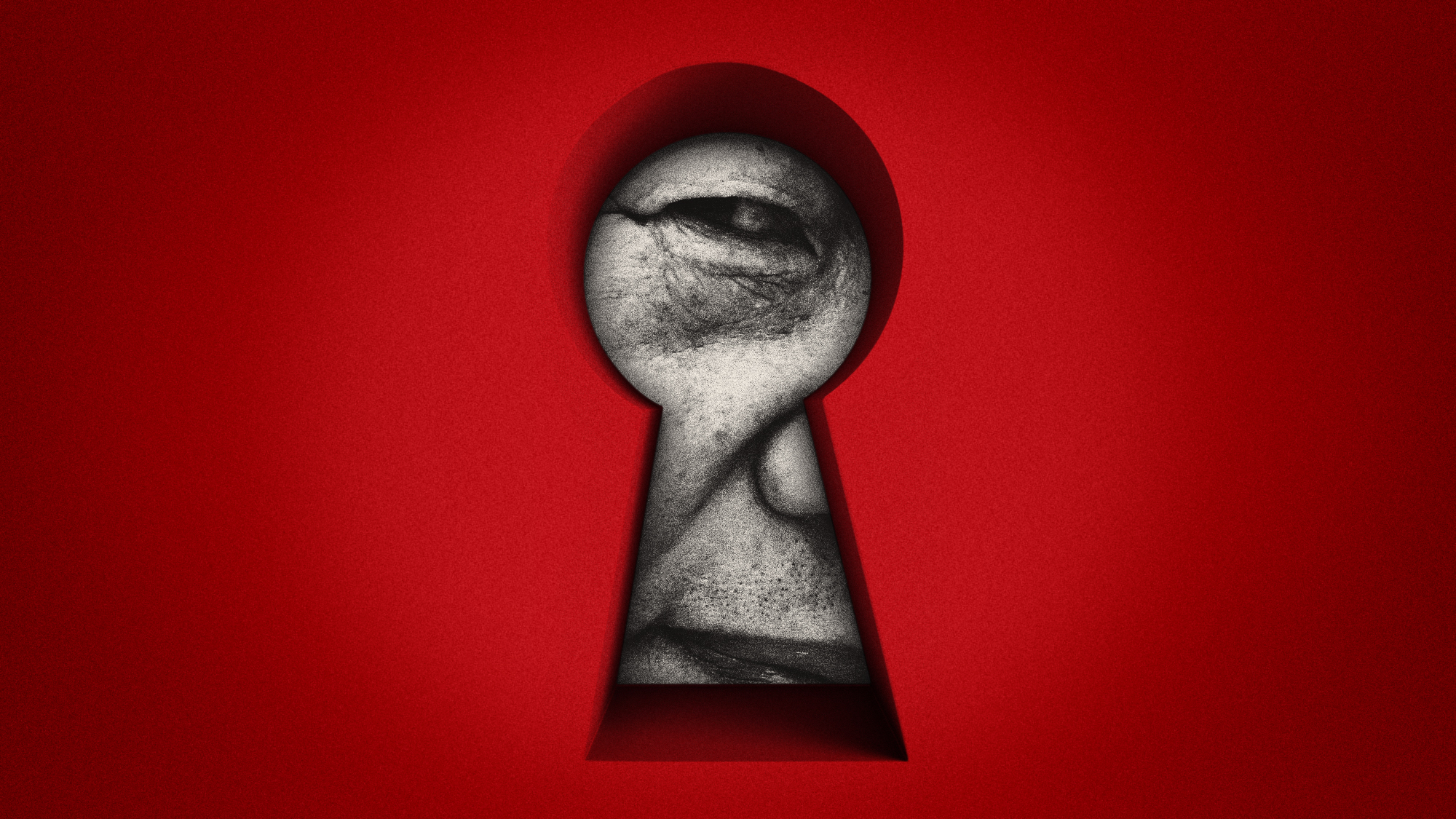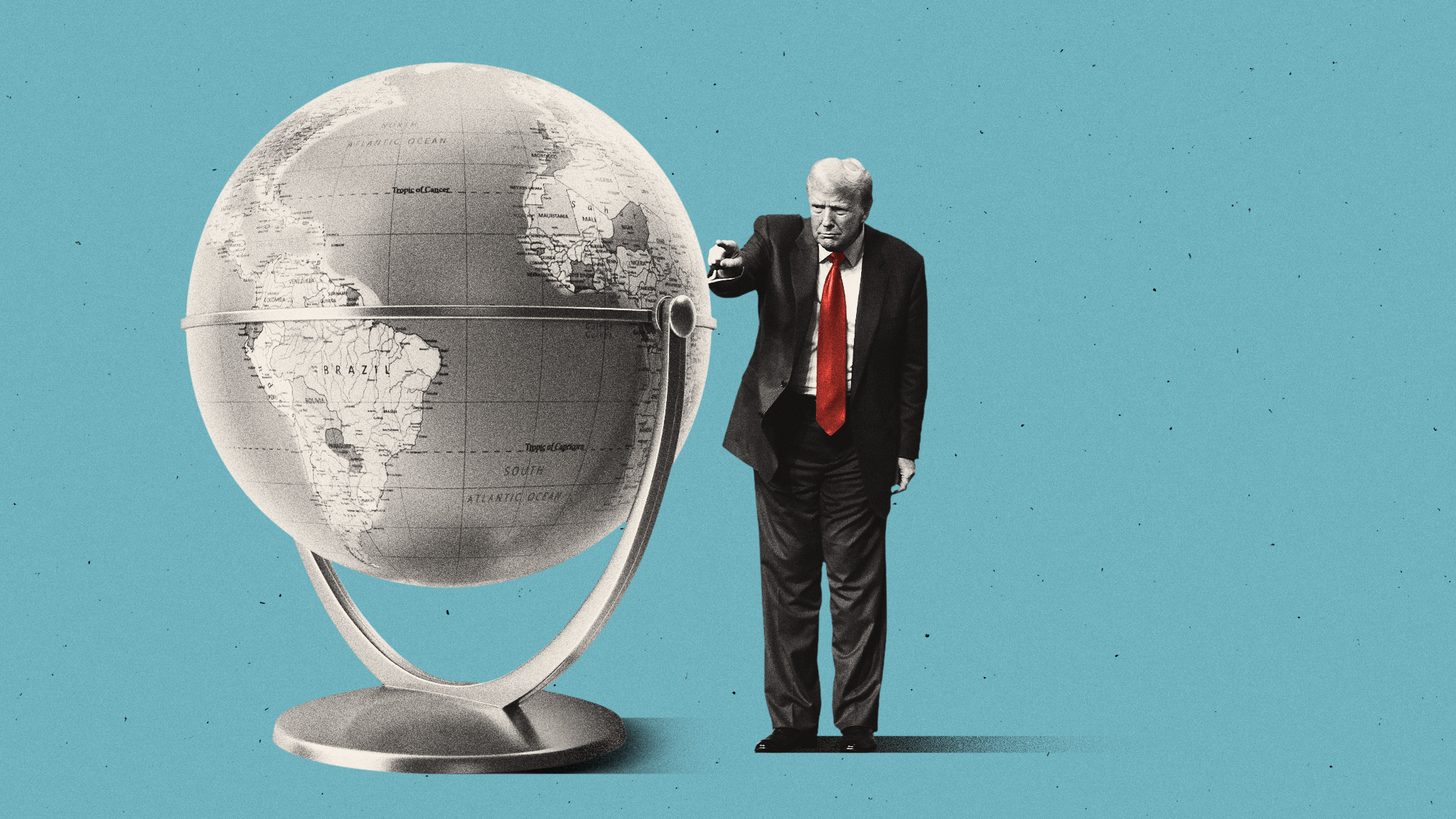What will bring Vladimir Putin to the negotiating table?
With diplomatic efforts stalling, the US and EU turn again to sanctions as Russian drone strikes on Poland risk dramatically escalating conflict

A free daily email with the biggest news stories of the day – and the best features from TheWeek.com
You are now subscribed
Your newsletter sign-up was successful
Peace in Europe seems further away than at any time since the start of Russia’s invasion of Ukraine more than three years ago.
Far from forcing a ceasefire between Vladimir Putin and Kyiv, Donald Trump’s return to the White House has seen an escalation in Russian aerial attacks, culminating in this morning's dramatic drone incursion into Poland.
“Putin just keeps escalating, expanding his war, and testing the West. The longer he faces no strength in response, the more aggressive he gets,” Ukrainian Foreign Minister Andrii Sybiha wrote on X. “A weak response now will provoke Russia even more – and then Russian missiles and drones will fly even further into Europe.”
The Week
Escape your echo chamber. Get the facts behind the news, plus analysis from multiple perspectives.

Sign up for The Week's Free Newsletters
From our morning news briefing to a weekly Good News Newsletter, get the best of The Week delivered directly to your inbox.
From our morning news briefing to a weekly Good News Newsletter, get the best of The Week delivered directly to your inbox.
What did the commentators say?
Recent attempts to bring Russia to the negotiating table have focused predominantly on diplomatic efforts. By sending his envoys to meet directly with Russian negotiators and “literally rolling out the red carpet for Putin”, Trump believed he “could reset the bilateral relationship”, said Alexandra Vacroux in the Los Angeles Times. “It did. But not the way Trump intended.”
Last month’s Alaskan summit “convinced the Russians that the current administration is willing to throw the sources of American global power out the window”. At the same time, Putin has positioned Russia at the centre of a new global power alliance, alongside China and India.
The Kremlin has insisted on its own “security guarantees” before laying down arms. These “reflect a list of grievances” that Putin refers to in shorthand as “the root causes” of the war, said The New York Times. They include a guarantee Ukraine will never join Nato, limits on Ukraine's military capabilities and, most contentiously, to be part of any international security guarantees provided to Kyiv, "which analysts have equated with the fox guarding the henhouse”.
Western efforts to craft a security deal for Ukraine without considering the Kremlin’s position make them unlikely to succeed, said Samuel Charap, a Russia expert at RAND Corporation, a security research organisation in Washington.
A free daily email with the biggest news stories of the day – and the best features from TheWeek.com
Putin knows his maximalist demands are unpalatable to Ukraine and many of its allies, but he believes he is slowly winning on the battlefield so has little reason to broker a ceasefire agreement while he still holds out hope of a major breakthrough that will secure Moscow better terms – or even the collapse of Ukraine’s defences.
The alternative, as set out by Kęstutis Budrys, Lithuania’s foreign minister, this morning, is a ramping up of sanctions which “must strike at the heart of the Kremlin's war economy".
“In fact,” said Vacroux, “the Kremlin indicated a readiness to talk with Trump about the war only when Trump threatened very, very powerful’ sanctions in mid-July”.
What next?
Amid “frustration within the White House at the difficulty of brokering a peace deal” – and perhaps acknowledging that sanctions may be the quickest way to bring the war to an end – the Financial Times reported Trump has made an “extraordinary demand” that the EU follow the US on imposing tariffs on India and China for buying Russian oil and gas.
European capitals have been discussing potential secondary sanctions aimed at escalating economic pressure on Russia, but “many are nervous given the EU’s trade relations with Beijing and New Delhi”.
“It’s a question of, do the Europeans have the political will to bring the war to an end?” one US official said. “Any of these things will of course be costly, and for the president to do it, we need our EU partners and ideally all of our partners with us. And we'll share the pain together.”
Elliott Goat is a freelance writer at The Week Digital. A winner of The Independent's Wyn Harness Award, he has been a journalist for over a decade with a focus on human rights, disinformation and elections. He is co-founder and director of Brussels-based investigative NGO Unhack Democracy, which works to support electoral integrity across Europe. A Winston Churchill Memorial Trust Fellow focusing on unions and the Future of Work, Elliott is a founding member of the RSA's Good Work Guild and a contributor to the International State Crime Initiative, an interdisciplinary forum for research, reportage and training on state violence and corruption.
-
 How the FCC’s ‘equal time’ rule works
How the FCC’s ‘equal time’ rule worksIn the Spotlight The law is at the heart of the Colbert-CBS conflict
-
 What is the endgame in the DHS shutdown?
What is the endgame in the DHS shutdown?Today’s Big Question Democrats want to rein in ICE’s immigration crackdown
-
 ‘Poor time management isn’t just an inconvenience’
‘Poor time management isn’t just an inconvenience’Instant Opinion Opinion, comment and editorials of the day
-
 Munich Security Conference: a showdown between Europe and Trump?
Munich Security Conference: a showdown between Europe and Trump?Today’s Big Question Report suggests European leaders believe they can no longer rely on the US for military support – but decoupling is easier said than done
-
 What is ‘Arctic Sentry’ and will it deter Russia and China?
What is ‘Arctic Sentry’ and will it deter Russia and China?Today’s Big Question Nato considers joint operation and intelligence sharing in Arctic region, in face of Trump’s threats to seize Greenland for ‘protection’
-
 Is the Chinese embassy a national security risk?
Is the Chinese embassy a national security risk?Today’s Big Question Keir Starmer set to approve London super-complex, despite objections from MPs and security experts
-
 New START: the final US-Russia nuclear treaty about to expire
New START: the final US-Russia nuclear treaty about to expireThe Explainer The last agreement between Washington and Moscow expires within weeks
-
 What would a UK deployment to Ukraine look like?
What would a UK deployment to Ukraine look like?Today's Big Question Security agreement commits British and French forces in event of ceasefire
-
 Would Europe defend Greenland from US aggression?
Would Europe defend Greenland from US aggression?Today’s Big Question ‘Mildness’ of EU pushback against Trump provocation ‘illustrates the bind Europe finds itself in’
-
 Greenland, Colombia, Cuba: where is Donald Trump eyeing up next?
Greenland, Colombia, Cuba: where is Donald Trump eyeing up next?Today's Big Question Ousting Venezuela’s leader could embolden the US administration to exert its dominance elsewhere
-
 Did Trump just end the US-Europe alliance?
Did Trump just end the US-Europe alliance?Today's Big Question New US national security policy drops ‘grenade’ on Europe and should serve as ‘the mother of all wake-up calls’